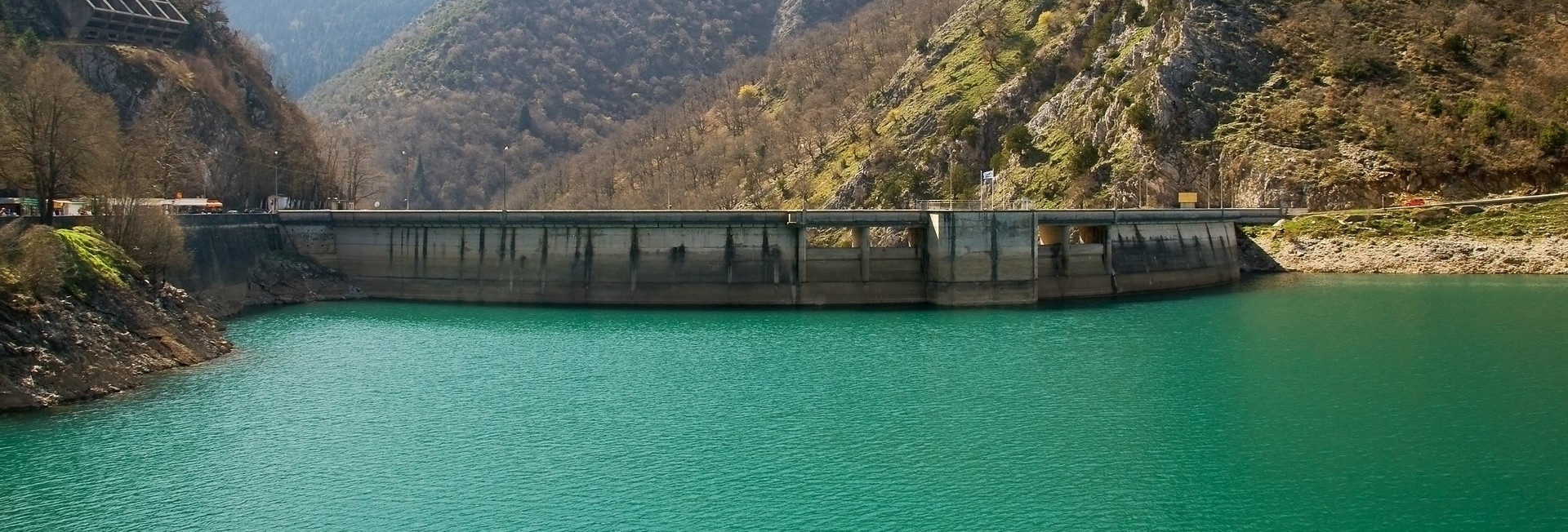Water Resources Management
The scope of the activity is Environmental Management with emphasis on aspects of water resources management related to the Water Framework Directive (2000/60/EC), the Marine Strategy Framework Directive and other National and European legislation relevant to, among others, potable water, bathing waters, surface waters intended for potable water supply, quality of ground waters and nitrate related pollution, urban wastewater treatment, effluent and sludge reuse and protected areas. In the context of these activities suitable mathematical models and GIS applications are widely employed in order to identify driving forces, pressures and pollution loads at a river basin level and to estimate anticipated impacts on surface, transitional and coastal water bodies as well as groundwater aquifers.
Integrated Water Resources Management
EMVIS has been involved in the water resources management as specified by the Water Framework Directive from the early stages of the implementation of the Directive. All aspects have been studied, related to the characteristics of the river basin, review of the environmental impact of human activity with emphasis to the pressure and impact analysis, identification of environmental objectives, water quality and water bodies’ classification and chemical and ecological status, establishment of River Basin Management Plans and enhancement of protection and improvement of the aquatic environment through specific measures and has developed competence to reporting issues and procedures. We have developed and applied advanced techniques and software applications that address water quality issues that allow efficient water management and decision making with emphasis to the identification of sensitive areas prone to pollution, and identification of mitigation and corrective measures.
Priority Substances and emerging pollutants
Protecting and improving the aquatic environment and ecosystems against chemicals’ pollution is one of the major environmental challenges addressed through various European Directives such as the Water Framework Directive and the Marine Strategy Framework Directive. Protection from the discharges, emissions and losses of hazardous and priority substances and compliance to environmental quality standards is regulated by the Priority Substances Directive (Directive 2008/105/EC as amended by 2013/39/EC), while numerous chemicals are of emerging concern because of their suspected negative impact on aquatic ecosystems and human health. Our expertise and continuous development of knowledge allow us to adequately address specific issues such as identification of significant pressures such as discharges from municipal and industrial wastewater treatment plants or diffuse runoffs from agricultural and urban areas, determination of ELVs, designation of mixing zones adjacent to discharge points and establishment of inventory of emissions, discharges and losses of the substances through development and application of innovative tools.
Other policy context
We have gained deep knowledge on issues related to the implementation of the European Union and National legislation with emphasis to the following key aspects of the policy framework:
- Groundwater chemical status and trend analysis, identification of threshold vales and natural background levels, according to the Groundwater Directive (Directive 2006/118/EC).
- Identification of bathing waters and monitoring requirements, establishment of bathing water profiles, bathing water classification and status, management of short-term pollution events according to the Bathing Water Directive (Directive 2006/7/EC).
- Design of monitoring network for potable water, potable water quality evaluation according to environmental quality standards, risk analysis and assessment, water safety plans design according to the Drinking Water Directive 98/83/EC as amended by the Directive 2015/1787/EC.
- Identification of vulnerable to nitrate pollution areas and of measures for the protection of waters against pollution caused by nitrates from agricultural sources according to the Nitrates Directive (Directive 91/676/EEC).
- Identification of sensitive areas and wastewater infrastructure strategic planning, evaluation of the performance of wastewater treatment plants and identification of operational needs according to the Urban Wastewater Treatment Directive (Directive 91/271/EEC).
- Wastewater reuse principles, criteria and sustainable practices according to the Greek Ministerial Decree 145116/2011 as amended by the decision 191002/2013.

